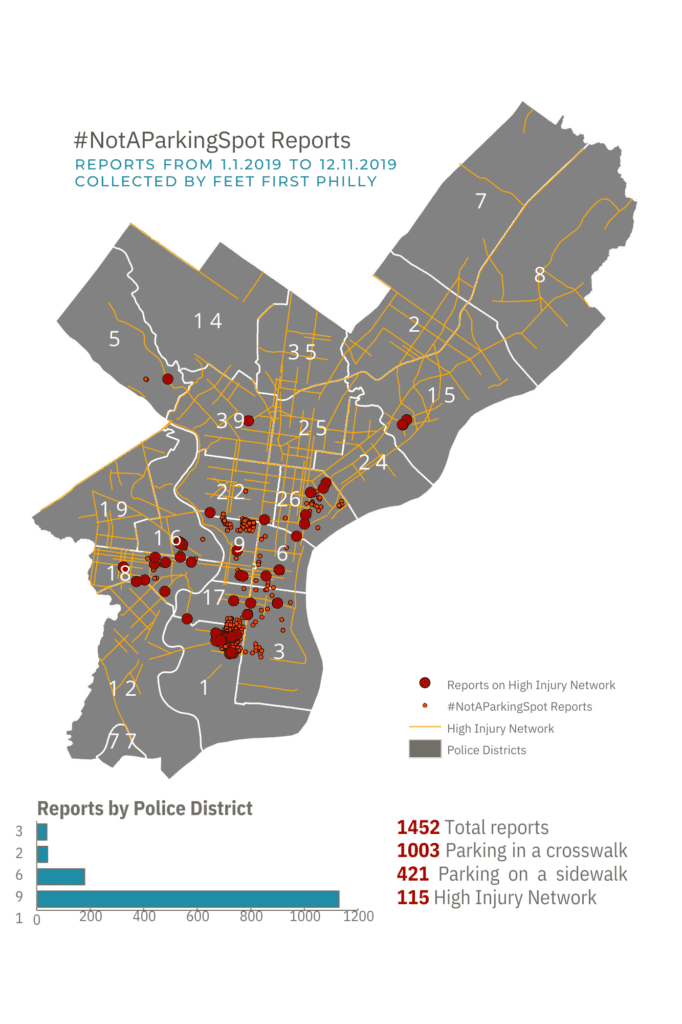Since 2017, Feet First Philly (FFP) has been documenting illegal parking on sidewalks, crosswalks, curb cuts, and bike lanes. Through their #NotAParkingSpot Twitter (now X) campaign, FFP has drawn attention to this issue for many years. Finally, we are excited to announce that the Philadelphia Parking Authority is planning to crack down on illegal parking that blocks crosswalks and sidewalks, inhibiting the mobility of and creating safety issues for pedestrians all over Philadelphia.
Over the years, FFP received thousands of reports of illegal parking, and has documented them, forwarded individual reports to the appropriate Police districts and the Parking Authority, and generated maps to show the extent of this problem. Until now the problem has never been a priority for enforcement agencies and the dangerous behavior has gone largely unchecked.

Now that the PPA is cracking down on illegal parking, they and their partner Variety will officially announce in mid-April the new program the “Mobility and Access Initiative” to the public. This new program will draw more attention to the issues that result from illegal parking. Hiring more enforcement officers is needed to get this program running, and we applaud the Philadelphia Parking Authority for committing to hiring 30 new enforcement officers to focus on vehicles illegally parked on sidewalks and blocking ADA-accessible curbs. Enforcement will begin in May, therefore providing a warning period of approximately four weeks after the official announcement.
Community members are aware of the issues created by illegal parking and have used Feet First Philly’s Public Space Enhancement Mini-grant program to help resolve them in their neighborhoods. For example, Friends of Adaire used funds from the Public Space Enhancement Mini-grant program to install planters and bike racks along the sidewalks of Earl Street and Palmer Street to prevent illegal parking and protect children and parents walking to and from school.
Illegal parking greatly affects pedestrians, with an even greater impact on vulnerable populations including people with disabilities, older adults, and children. With this new enforcement program in place, we hope to see a shift in culture from one that has allowed illegal parking to be pervasive in our city for so long to a place where pedestrians of all ages and mobilities can travel safely.

